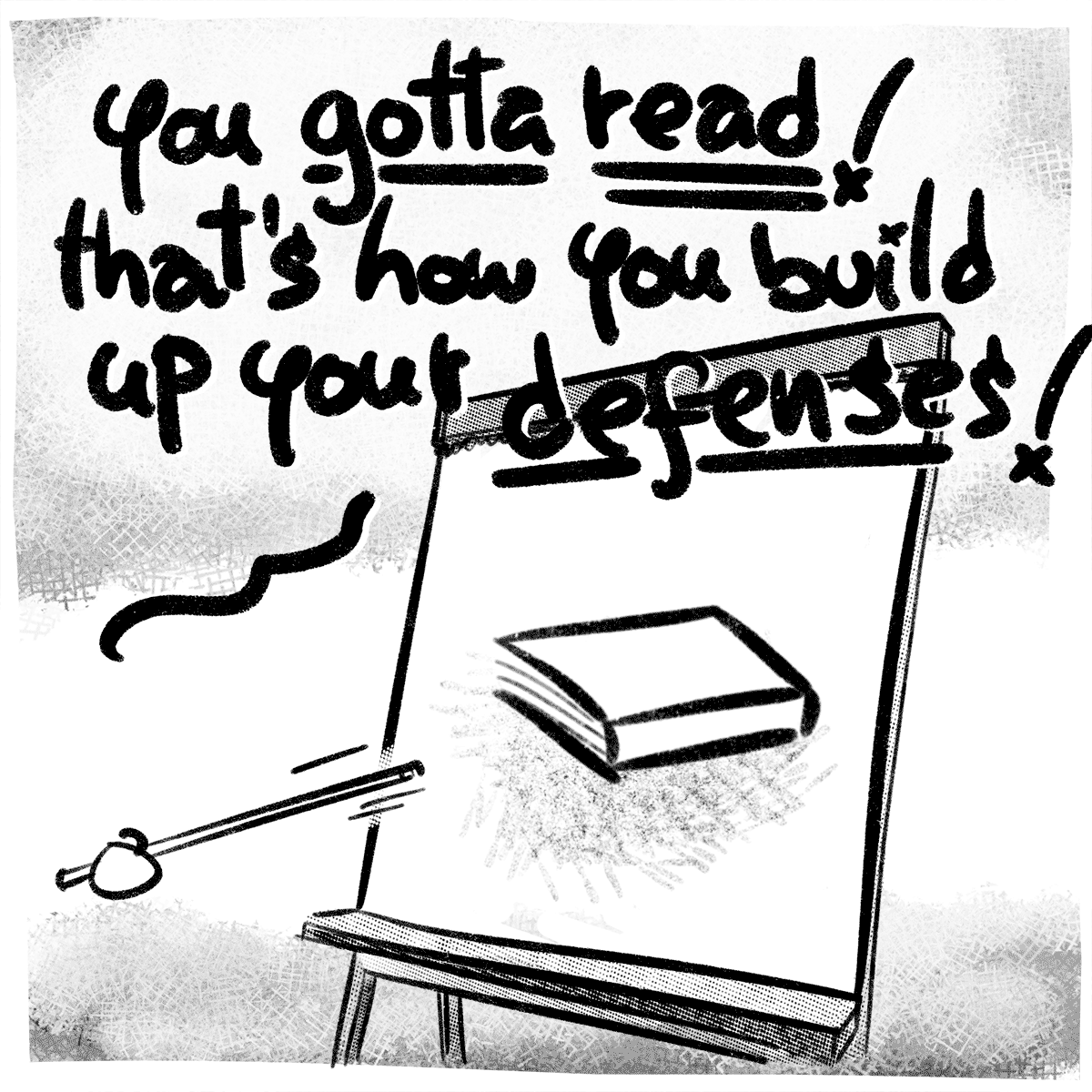wreak havoc

Último dia do ano, se temos que terminar com uma ideia, deixamos-vos esta: da capacidade de pensar.
Até que ponto somos livres nas nossas decisões? Convencemo-nos que escolhemos o curso da nossa vida, mas será verdade? Há 500 anos atrás a nossa visão de mundo e as decisões que tomaríamos baseado nessa seriam totalmente diferentes. As nossas mentes são moldadas pelo nosso ambiente social, em particular pelos sistemas de crenças projetados por aqueles que estão no poder: monarcas, aristocratas e teólogos então; corporações, bilionários e os media agora. Os seres humanos, mamíferos profundamente sociais, são esponjas éticas e intelectuais. A própria ideia de que podemos formar nossas próprias mentes é uma noção que teria sido bastante estranha à maioria das pessoas há cinco séculos atrás.
Acabaram de ler George Monbiot publicado hoje 31 dez 2018 — citámos sem citação porque fazemos nossas as suas palavras e dele o mote à nossa despedida:
This is not to suggest we have no capacity for independent thought. But to exercise it, we must – consciously and with great effort – swim against the social current that sweeps us along, mostly without our knowledge.
in "Advertising and academia are controlling our thoughts. Didn’t you know? " 31 dez 2018
Ainda do seu texto, porque leituras em camadas faz parte mashup em marketing digital e universidades onde nos intriga e repugna 'cuz — u know —, funny! mas podem saltar para o final do bloco se não acompanham essas tendências.
There is one major industry that seeks to decide on our behalf. Its techniques get more sophisticated every year, drawing on the latest findings in neuroscience and psychology. It is called advertising, a discipline that is rapidly closing in on our minds, making independent thought ever harder. More sophisticated advertising meshes with digital technologies designed to eliminate agency. What puzzles and disgusts me is the willingness of universities to host research that helps advertisers hack our minds. The Enlightenment ideal, which all universities claim to endorse, is that everyone should think for themselves. So why do they run departments in which researchers explore new means of blocking this capacity? Among the places in which the challenge should begin are universities, and the academic societies that are supposed to set and uphold ethical standards. If they cannot swim against the currents of constructed desire and constructed thought, who can?
in "Advertising and academia are controlling our thoughts. Didn’t you know? " 31 dez 2018
Exemplos ao caso, onde nos toca:
For example, I came across a paper that counsels advertisers on how to rebuild public trust when the celebrity they work with gets into trouble. The researchers advised that the best means to enhance "the authentic persuasive appeal of a celebrity endorser" [is] the "construction" of sincerity and "genuineness": a magnificent exercise in inauthentic authenticity.
in "Advertising and academia are controlling our thoughts. Didn’t you know? " 31 dez 2018
Outros, onde vos toca.
Intrigued, I started looking for other academic papers on the same theme, and found an entire literature. There were articles on every imaginable aspect of resistance, and helpful tips on overcoming it. Their purpose seemed to me starkly at odds with the public interest. They sought to identify "the different ways in which consumers resist advertising, and the tactics that can be used to counter or avoid such resistance". Among the "neutralising" techniques it highlighted were hitting us with enough advertisements to exhaust our mental resources, breaking down our capacity to think.
in "Advertising and academia are controlling our thoughts. Didn’t you know? " 31 dez 2018
E uma para os cómicos se a BD é a vossa ferramenta de eleição:
Another paper considered how to persuade sceptical people to accept a company’s corporate social responsibility claims, especially when these claims conflict with the company’s overall objectives — how images and statements could be cleverly combined to "minimise stakeholder scepticism".
in "Advertising and academia are controlling our thoughts. Didn’t you know? " 31 dez 2018
"Imagens" e "statments"? Wink-wink, lookin' at u, punx! Já minimizávamos esse cepticismo não? Precisam que vos façam um desenho? Faz dessa uma resolução de ano novo.
The purpose of this brain hacking is to create more effective platforms for advertising. But the effort is wasted if we retain our ability to resist it. Advertising – with its destructive impacts on the living planet, our peace of mind and our free will – sits at the heart of our growth-based economy. This gives us all the more reason to challenge it.
in "Advertising and academia are controlling our thoughts. Didn’t you know? " 31 dez 2018
De resistência e quem os desafia, a resposta sabem-na ou não partilhariam destes espaços do contra — com cultura. Vivemos numa era onde nos é possível "agência" própria (*) Pun intented: também temos humor., podemos adiantar aos teens as ferramentas para comportamentos de resistência que se regem outras lógicas sem os constrangimentos que hipocritamente apenas nos retraem a nós. Diz o Jorge:
We can expect commercial enterprises to attempt whatever lawful ruses they can pull off. It is up to society, represented by government, to stop them, through the kind of regulation that has so far been lacking.
in "Advertising and academia are controlling our thoughts. Didn’t you know? " 31 dez 2018
Desconfiamos de iniciativas onde se distinguem governantes de governados, e expectamos que non-commercial enterprises atentarão qualquer unlawful ruses they can pull off quando o resto falha. Outro amanhã é possível e desejável, ads-free. E de amanhãs literais: 2019, comece a festa.



